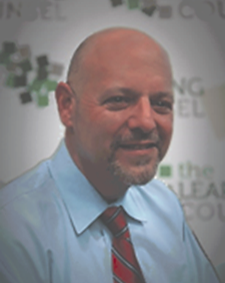“Sometimes, I feel I gotta get away
Bells chime, I know I gotta get away
And I know if I don't, I'll go out of my mind”
--Pete Townshend, The Who
If you believe everything you read, this generation of pandemic-laden boys and girls is the angst generation. Suicidal, stress-ridden, traumatized little bundles of joyless youth who are so far behind the learning gap that we might as well write them off as lost, or at best, striving towards average.
In fact, that’s the majority of what you read in the education press as well as the mainstream news.
As an editor in the education press, I am, perhaps, more guilty than most. In my efforts to bring light to the shadows of youth trauma, I have neglected to write about, talk about, and publicize the other side of the education coin.
What do you mean, Charles? Aren’t you just being a responsible journalist by covering the dark side of education?
After a good bit of soul searching, I am forced to admit that I am not. In fact, I have been down-right irresponsible. Why? Because, truth be known, the kids are alright.
They are better than alright. In fact, for the first time in perhaps, forever, education is at an amazing crossroads and our kids are poised to take advantage of the largest sea change in our profession’s history. It has been brewing for a number of years, but when schools closed in March of 2020, COVID became the catalyst for a whole new spirit in education. For the first time in my lifetime, no one was uttering the words, “that’s the way we have always done it.” Instead, the new mantra became, “What if…”
I see so many good things happening in education.
Brain science is making great in-roads. If you read the Learning Counsel site regularly, you are familiar with the writing team of Betsy Hill and Roger Stark. The two are hip-deep in cognitive training research and implementation, and the world is watching. I can comfortably say they are among the world’s leading authorities in that subject. Once upon a time, we used to believe that intelligence was fixed. If you had a 90 IQ, you would have that same IQ for your lifetime. We know now that the brain is malleable, and cognitive training can make us smarter. I have been very fortunate to interview a number of parents whose children have received cognitive training, as well as principals and other administrators who are using cognitive training programs in their schools and districts. The results are more than encouraging; they are absolutely electrifying. It wasn’t that long ago that brain science was akin to voodoo, almost like a pseudoscience. I even remember a comment from a teacher some years ago who remarked, I kid you not, “I don’t see what brain science has to do with learning.”
Community schooling is another area that is making great in-roads. The concept has been around for at least 30 years, though without much momentum for most of those years. I first became aware of community schools in 2009 when Arne Duncan took the Secretary of Education reins. I conducted a phone interview with the secretary, and that is all he wanted to talk about. Fast forward 13 years, and a number of states, including California, are putting together some very sophisticated state-wide community school programs. It seems the key is using some Uber-quality technology to tie all the community resources together and make the whole thing work. For more information, read the continuing article series by James Stoffer and Zach Vander Veen, found on the Learning Counsel site.
If you have been following the work that LeiLani Cauthen has been doing, you know that she is blowing the lid off the notion of time and space in education. Cauthen, who is part CEO and Publisher, and part future prognosticator, has been leading education down a path to its own future. I don’t want to indicate that Cauthen is psychic, but at the very least she is one of the premiere futurists in the education biz. Before the pandemic, she deigned a life-sized board game (10 feet by 30 feet) that can be played to teach districts about the future of personalization in education. The game teaches us how to eliminate the traditional structure of time and place and provide just-in-time learning to students.
It looks like a giant “Twister” with a working model of student workflow in a school that uses a giant House Room, adjacent rock-climbing wall, ping-pong and yoga space to get kids moving if they reach a time limit on screen-learning; a snack area, teachers’ offices, separate classrooms, labs, meeting spaces for interactive whiteboarding or video collaboration, a space for an activity leader/advance stager of resources for labs and an on-site curriculum planner called a Guide who watches the analytics and pacing just like teachers, and helps them with further customizations. Now that the pandemic is pan-de-bye-bye, you can request training with this future (and soon to current best practices) personalization of education. Aside from being the future of education, it may be the definitive answer to the loss of millions of students to homeschooling and other non-traditional schooling methods.
And here’s an idea for you. Talk to your students. If you are a parent, talk to your kids. Get to know their plans. Their hopes and their dreams. You’ll immediately notice two things. One, they are very different than we were at their age. And two, they are remarkably smart, remarkably passionate and remarkably giving. I don’t think we could be in better shape, and the world could not be in better hands for the future.
And sure. We have some problems to work out. And it will be a bit of a long road back. But in the education biz, the big news is good news. Believe it.
Because no matter what you may have read, the kids are alright!
About the author

Charles Sosnik is an education journalist and editor and serves as Editor in Chief at the Learning Counsel. An EP3 Education Fellow, he uses his deep roots in the education community to add context to the education narrative. Charles is a frequent writer and columnist for some of the most influential media in education, including the Learning Counsel, EdNews Daily, EdTech Digest and edCircuit. Unabashedly Southern, Charles likes to say he is an editor by trade and Southern by the Grace of God.










